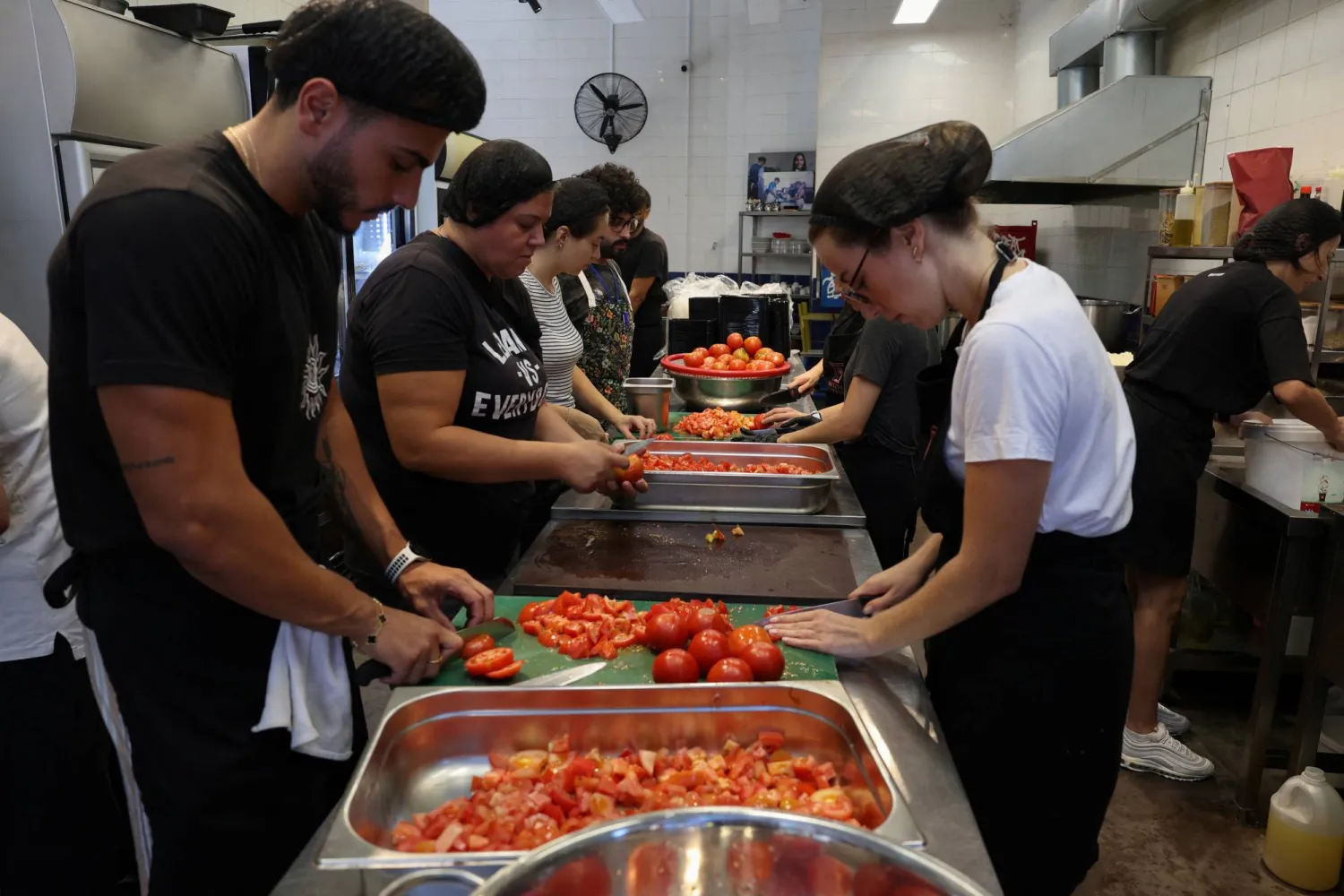Chains of volunteers spoon rice and vegetables into meal containers while others stir huge pots of boiling rice, as a soup kitchen in Beirut struggles to keep up with demand from displaced people escaping Israeli strikes.
Josephine Abu Abdo, a chef and one of the founders of Nation Station, said the kitchen is serving 700 meals a day and is at maximum capacity, but she then hears 1,000 meals are needed.
"The challenge is that we can't keep up. We feel like we are just a drop in the ocean," Abu Abdo said, while a team of volunteers of different ages from all over Lebanon hurriedly packaged up food.
Nation Station was founded to help victims of the devastating 2020 Beirut port explosion, growing from a team of five to a hundred over time. It serves some traditional Lebanese dishes, such as zucchini stuffed with rice and meat, bulgur and tomato, vegetable soup and cabbage salad, reported Reuters.
When the Israeli strikes across Lebanon intensified on Monday, forcing around 40,000 into shelters within days, the volunteers cooked more food without any funding, distributing it as an emergency response to the centers housing the displaced.
"We worked from the small savings that we had for the first three days. Then, many people started donating," Abu Abdo said.
"The donation that we receive will cover us for two or three days. We will see, one day at a time and we will make a decision," she added.
Israeli attacks have killed more than 600 people in Lebanon since Monday, with the conflict between Israel and Iran-backed Hezbollah at its most intense in more than 18 years.
Hezbollah has been firing rockets into Israel for almost a year in support of its ally Hamas, which is fighting Israel in Gaza.
Tens of thousands of people on both sides of the Israel-Lebanon border have fled their homes and Israel has declared the safe return of its residents as one of its war aims.
"We are all trying our hardest to make a little bit of a difference and to help out. It's like the least we can do and unfortunately we are used to this," May Ayash, a professional chef who volunteers at the kitchen said.
Beirut Soup Kitchen Struggles to Keep Up as Israeli Strikes Intensify

Volunteers at non-profit organization 'Nation Station', prepare meals to be distributed for people who were displaced due to ongoing hostilities between Hezbollah and Israeli forces, in Beirut, Lebanon September 26, 2024. REUTERS/Mohamed Azakir

Beirut Soup Kitchen Struggles to Keep Up as Israeli Strikes Intensify

Volunteers at non-profit organization 'Nation Station', prepare meals to be distributed for people who were displaced due to ongoing hostilities between Hezbollah and Israeli forces, in Beirut, Lebanon September 26, 2024. REUTERS/Mohamed Azakir
لم تشترك بعد
انشئ حساباً خاصاً بك لتحصل على أخبار مخصصة لك ولتتمتع بخاصية حفظ المقالات وتتلقى نشراتنا البريدية المتنوعة







